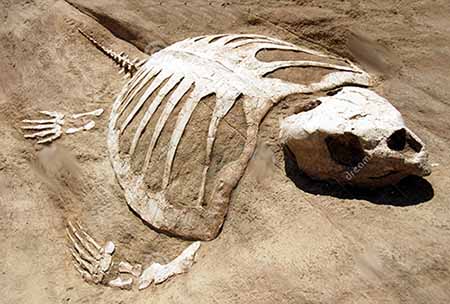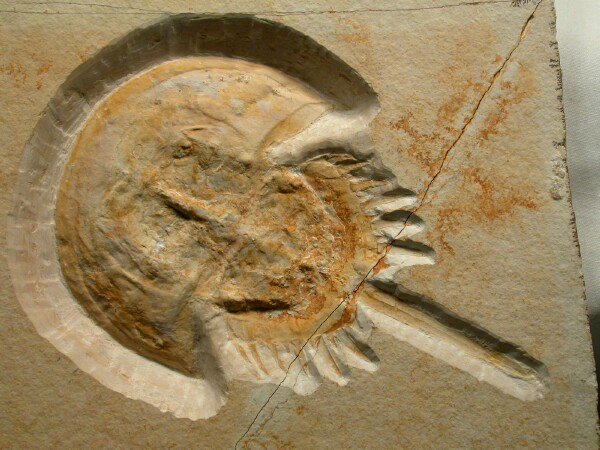What type of environment did this fossil live in?
Water, Ocean, Pond

Starfish
We can study fossils to learn about what?
a. What the weather will be tomorrow.
b. What plants and animals lived long ago.
c. How living things needs rocks to live.
d. How a mountain forms.
b. What plants and animals lived long ago.
What does the word ancient tell you about a fossil?
What activity did we do to show how a fossil can be an imprint?
We made fossils with objects and clay.
Which fossil would tell us that the area had been covered with trees in the past?
a. snail shell
b. scorpion
c. dragon fly
d. millipede

The millipede used to live in a forest.
A forest has trees.

Lizard
What is a fossil of an organism called if it was preserved/created in tree sap.
Amber
MAGICAL FREE POINTS
WOO HOO! LUCKY YOU!
What activity did we do to show how layers of the dirt tell us old a fossil is?
We created a posted for fossils 70, 80, 90, and 100 meters down.
The map shows where fossil plants were found. The table shows the habitat where these plants grew in the past. In which area on the map was there previously an ocean?

B. Seaweed
The ocean has salt water and the seaweed lived in salt water.

Turtle
What is a fossil?
The remains of ancient life that have been preserved by natural processes.
These fossils were found, buried, 90 meters under the desert ground. What do these fossils tell us about what the environment used to be like?
The area there used to be an ocean.
When learning about the likelihood of a fossil forming, what activity did we do?
We read scenarios and circled whether there was a high or low likelihood of becoming a fossil.
What was the environment for this organism.

It is a ancient scorpion fossil. Scorpions lived in the desert.

Horseshoe crab
What are at least 2 examples of types of fossils?
Imprints of foot prints or tracks
Bones
Amber
Below the ice in the Arctic are rocks with fossils. Some fossils found there are of plants that only grow in warm places. Finding this fossil here can tell us what?

The land was not always a cold place with ice.
The environment has changed over time.
We looked at pictures and shared with a partner what we thought the fossil was and why we thought that.
The diagram shows one rock layer on top of another. The table shows the habitats of different plants and animals.
Using this information, what was the order of habitats in this area?

The clam shell, that lived on a seashore, is in the deepest layer of sediment, therefore it came before the tree fossil, that lived in a forest.

T-Rex
Answers may vary.
What are some things scientists can learn from studying fossils? List at least 2 different things scientists can learn.
Fossils can tell us what plants and animals lived in certain areas in the past.
It can also tell us what past environments were like.
What game did we do as a review?
JEOPARDY!